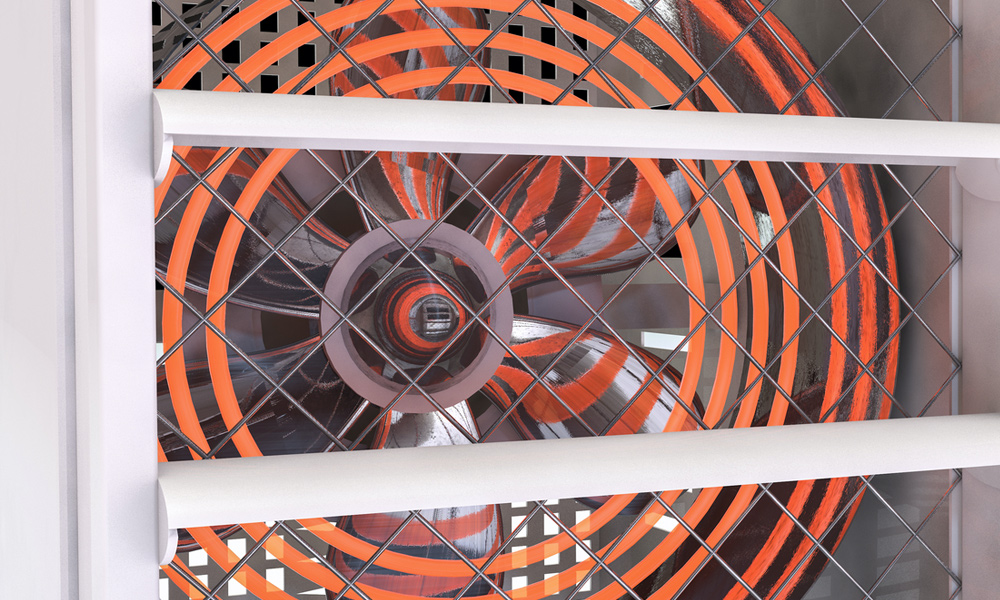What Size Heater Do I Need For My Garage?
 Looking for a warm spot to work over a cold winter? Or somewhere to keep your tools, car, fuel, and other equipment in tip-top shape (and ready to use any time of year)? Then you’ll need to find the right size and type of garage heater for your needs.
Looking for a warm spot to work over a cold winter? Or somewhere to keep your tools, car, fuel, and other equipment in tip-top shape (and ready to use any time of year)? Then you’ll need to find the right size and type of garage heater for your needs.
When asking yourself what size heater you need for your garage, there are other questions to answer too. The right heater for your garage isn’t just about size; it’s also about BTUs and the type of heat component it uses. (Though size can matter too.)
Why is the Right Type of Garage Heater Important to Determine?
Well, it saves you money. Get a heater that’s too big and powerful for your small space, and you risk paying way too much upfront. Too small, and you spend tons on heating to warm up your space.
Fortunately, finding the heater that’s “just right” is easy to figure out.
Quick Tips for Determining the Right Size Garage Heater you Need
It doesn’t have to be complicated. Calculating the right size heater for your garage only requires measuring tape, a pad and paper, and your computer— and of course, a calculator.
Step 1: Determine your Garage Square Footage.
Because so many people in residential areas buy garage heaters these days (and not just industrial buildings or shops), various heaters are now designed so that you only need to determine the square footage of your garage instead of making other complex measurements or calculations.
The proper square footage for each heater is indicated right there on the label or in the product description.
All you Have to Do Is:
Measure the length and the width of your garage interior (floor space is easiest). Multiply these together, and you have your garage area or square footage. For example, a 30 foot by 25 foot garage equals a square footage of 750 feet.
Heater size Calculator
Want a more precise calculation of your garage space for your garage heater? There are few more steps you can take.
Step 2: Determine Total Cubic Feet of your Garage.
For some garage heaters, the best fit for your space can be determined by the total cubic feet of your garage. This may be indicated in the product description or label rather than just square footage. If you’ve determined the square footage of your garage already, then you’re halfway there!
All you Have to Do Is:
In addition to calculating the width and length of your garage, measure the height from floor to ceiling. Add this to your calculation of square footage. For example, your square footage of a 30 foot by 25 foot structure is 750 square feet.
Next, take that total and multiply it by the calculated height of your garage. Let’s say your garage is 10 feet tall from floor to ceiling. 10 foot multiplied by 750 square feet equals 7500 cubic feet.
Step 3: What Temperature Rise is Required of your Garage Heater?
To make an even more precise calculation for the right garage heater, you’ll want to determine temperature rise, which will also help you figure out the required BTUs of a heater to warm your space. (More on that coming up).
To do this, you’ll need to have an idea of your area’s lowest seasonal temperature, along with how warm you’d like your space to be.
Let’s say your lowest seasonal temperature is 15˚F, but you want to keep your garage at a level 65˚F throughout winter. Subtract 15 from 65, and you get 50. That’s your calculated temperature rise number, which you’ll need later.
Step 4: Determine Needed BTUs – How Insulated is your Garage?
If you’re shopping around for garage heaters, you might find that some options don’t indicate square footage or a cubic feet calculation to help you determine the right buy. Instead, they only indicate BTUs (British Thermal Units).
BTUs measure how much energy is produced to heat something. To determine how many BTUs your space will need to be fully heated, you’ll need to know how thick your garage’s insulation is (if it’s insulated at all), along with the cubic feet measurement and your temperature rise calculation.
 Generally Speaking:
Generally Speaking:
If your garage is insulated like your house, then you don’t need a high BTU heater. But if it’s less insulated or not at all, then you’ll need more BTUs to heat it.
That said, there’s a quick shorthand to get a more exact determination. Use the number variable 5 if you have no insulation, the number 1.5 for minimal insulation, the number 1 for average insulation, and 0.5 for very good insulation (comparable to a home).
Next, multiply your insulation number by your cubic feet calculation and calculated temperature rise. Take that total and then divide it by 1.6 to determine your garage needed BTUs.
For example, you might have minimal insulation for your 7500 cubic feet building, with a temperature rise of 50 (as calculated before). Multiply 1 by 7500 by 50, and then divide that by 1.6. This means you’ll need to get yourself a heater rated at a capacity of 234,375 BTUs (or a little more, just in case).
Another Quick Way to Calculate BTUs (Without Measuring Temperature Rise)
Take the square footage of your space instead (750), divide that by 200 (equals 3.755), and multiply it by 6000 if the garage is insulated (about 22,300 BTUs). If your garage is insulated, multiply by 9000 instead— this equals BTUs of 33,795. As you can see, the first calculation is more precise and will more likely take into account the specific low temperatures (and ideal temperatures) you’ll experience in the winter.
The Most Efficient Way to Heat Your Garage
Is there more to buying the right and most efficient garage heater besides BTUs or square footage? Yes— there are other factors to consider too.
That’s where heater size comes in, as well as heater type. For larger spaces, a larger heater is the intuitive answer (though be sure to double-check those BTUs). The same goes for smaller heaters and spaces.
You can also choose between various types like electric, forced air, convection, fuel, or radiant or infrared. Forced air is excellent for large spaces, while an electric type works best in more insulated spaces.
No matter how large or small your garage space is, keeping it cozy even through the winter months is possible with the right heater! It doesn’t take too much time and effort to determine the right one for your needs, too.